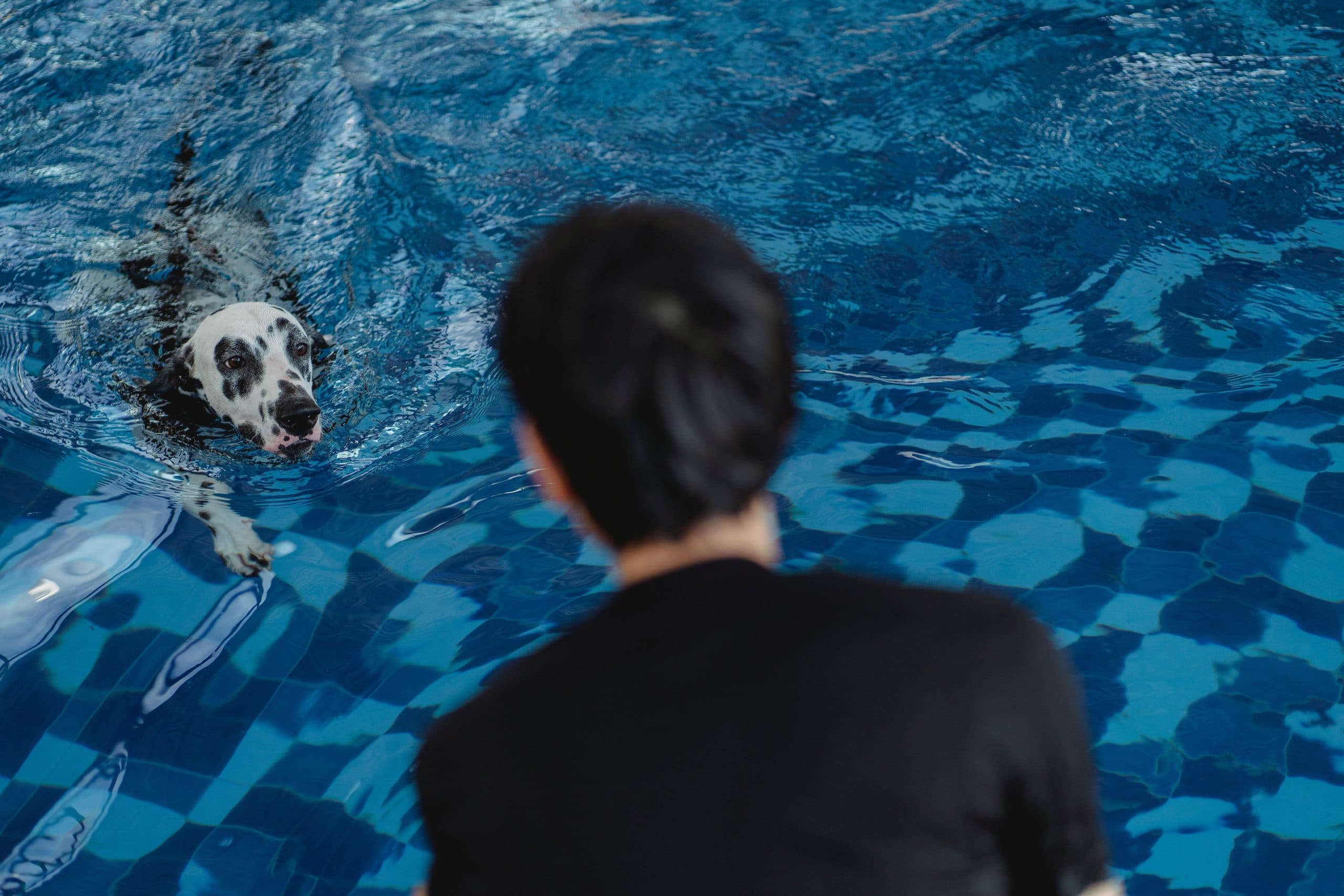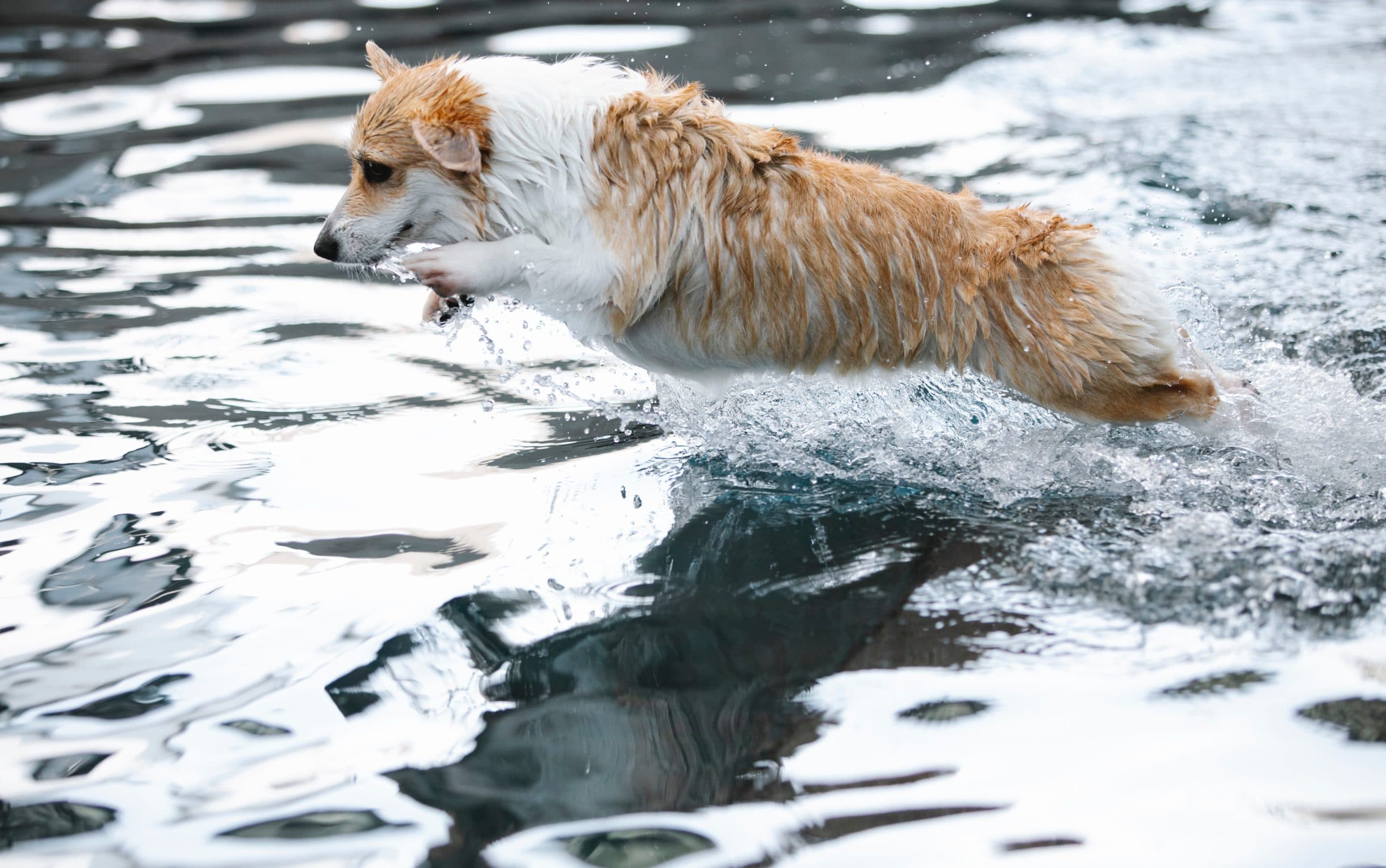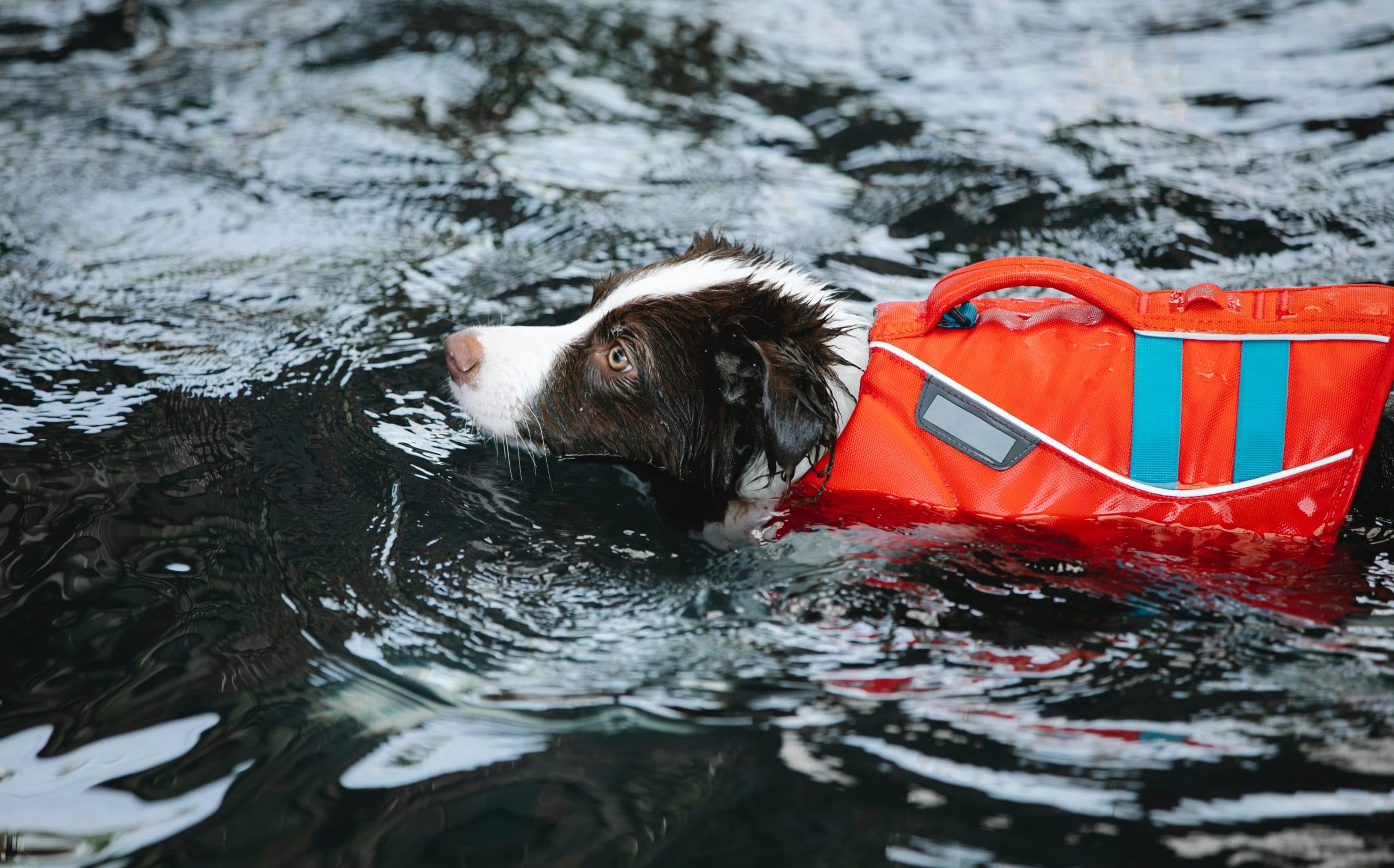Summer is officially here, which means it’s time for fun at the beach and pool.
But before you pack up Fido, you might be wondering, “Can all dogs swim?”
We’ve all seen videos of dogs happily splashing into a lake, ocean, or pool for a bit of fun in the sun. We even named a swimming stroke “doggy paddle” after the natural motion of dogs in the water.
But if you plan to pack up your animals for a day at the beach this summer, assuming that they can swim could be dangerous.
In this article, we’ll go over some dog water safety tips and answer the burning question, “Can all dogs swim?”
Can All Dogs Swim?
There’s a popular myth floating around that all dogs are born knowing how to swim.
While this may be true for some dogs, others will quickly sink like a rock in any body of water. Other dogs may be able to swim but need a little help.
Strong Swimmers
Some breeds are natural swimmers simply because they were bred that way. Dogs have been our faithful companions for millennia, so it’s only natural that humans selectively bred traits that would be the most helpful.
For example, dog breeds such as retrievers and spaniels were bred to help hunters retrieve animals from the water. Portuguese Water Dogs and Newfoundlands were developed to aid fisherman herd fish and haul in heavy nets.
Breeds that tend to be strong swimmers often have features such as water repellent fur and webbed feet to aid their mobility.
Landlubbers
If some dogs were bred to swim like fish, you can bet that others were bred for more land-locked activities.
Dogs with short muzzles are not usually considered good swimmers and should be carefully watched near the water. Known as “brachycephalic,” these dogs (such as Pugs, Boxers, and Bulldogs) tend to have respiratory problems that can quickly become a problem in the water.
Dogs with short legs (think Corgis and Basset Hounds) may also tire easily in the water.
Cautious Swimmers
Of course, there are always exceptions to every rule. You may have a Golden Retriever that’s frightened of a simple bath, or a Corgi who won’t stay out of the pool. Until you know if your dog is a strong swimmer, you should always practice good water safety habits, such as putting your dog in a life jacket.
Dog Life Jackets
Being safe in and around the water is just as important for dogs as it is for humans. And part of good water safety means wearing a life jacket.
A dog life jacket is always the safest route, even if your dog is a good swimmer. Life vests help give your dog a sense of confidence in the water. When many dogs first come in contact with water, it can catch them off-guard. In those first moments, having a life vest can offset the danger of being caught by surprise.
These vests are important because undertow, rip currents, or a game of fetch can all make your dog tired after a long day.
Life jackets can also help your dog learn to swim naturally. Most dogs instinctively swim with their front paws, letting their back legs hang to gauge the depth of the water. By lifting your dog’s rear end up to the surface, this can sometimes trigger them to paddle with their hind legs.
When shopping for a dog life jacket, make sure you choose one that is both properly sized and comfortable. Extra options that could be helpful are a handle to help lift your dog out of the water and a bright color to help you spot them in the water.
How To Give Your Dog Swimming Lessons
Whether your dog is an excellent swimmer or could use some help, dog swimming lessons are always a good idea.
A word of caution: don’t throw them in and hope for the best! You want your dog to associate the water with fun, not fear.

Dog beaches (like the one in Lake Baldwin Park) also tend to have a more gradual slope into the water, which can make for an easier transition.
If your dog is very water-sensitive, try a small kiddie pool in the backyard.
Remember, not every dog will enjoy swimming! Just like people, they have their unique quirks. If your dog really doesn’t seem to be enjoying him/herself, don’t push the issue.
Dog Water Safety Tips
Whether your dog is a strong swimmer or not, you should always practice some common sense water safety tips.
First, make sure that the temperature of the water is comfortable. Too hot or too cold won’t make for a pleasant experience (and it could even be dangerous).
Second, keep in mind that any natural body of water (such as a lake or ocean) could contain dangerous wildlife, such as snakes, gators, jellyfish, sharks, or even fishing line/hooks.

Swimming is thirsty work, but you should always monitor your dog to make sure they aren’t drinking too much water too quickly, as this can irritate their stomach (yes, even if the water is “clean”). Dogs should never be allowed to drink pool or ocean water.
Finally, watch for any signs that your dog has inhaled water. Like humans, dogs can experience “dry drowning”. If your dog comes out of the water coughing and/or struggling to breathe, take them to a vet immediately.
Conclusion
Not all dogs are naturally born swimmers, but with some guidance and patience, they can become pros in no time. Even if your dog doesn’t prefer a dip in the pool or lake, it’s still a good idea to get them a life jacket if you plan on spending any time with them around the water. (And don’t forget that they might need a bath after a day of splashing in saltwater and rolling in the sand at the beach.)
No matter what fun summer activities you have planned for your dog, they’re going to need plenty of energy to fuel their muscles and keep them going all summer long.
At Rick’s Dog Deli, we can provide your dog with the type of nutrition that will keep them strong for those long days by the water. With wholesome, USDA-inspected ingredients, you can rest assured that your dog is getting all of the nutrients they need.

